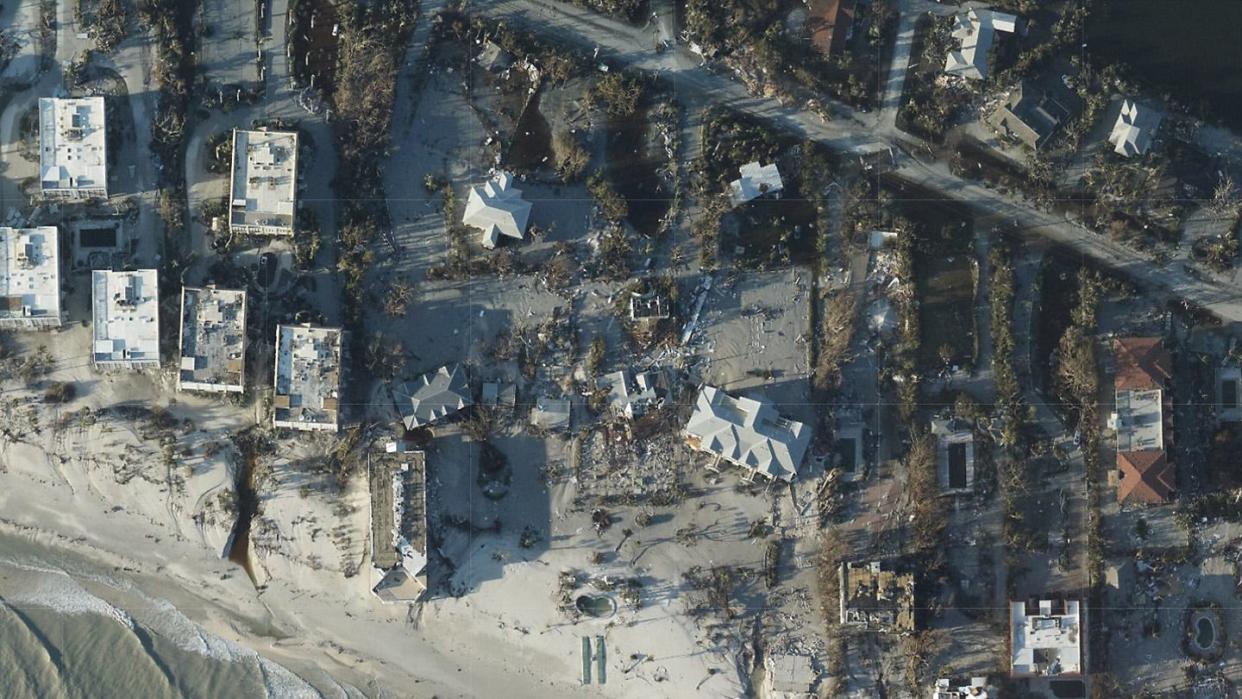Local activists: Hurricane Ian was another climate crisis warning

Hurricane Ian was a massive storm that caused catastrophic damage in Southwest Florida, where many people who stayed wish they had left. Here in Northeast Florida, we were fortunate and saw far less damage. But as the climate crisis continues to unfold with rapidly warming temperatures and rising sea levels, next time we might not be so lucky.
The relationship between hurricane strength and climate change is relatively simple. When we burn fossil fuels, such as oil, coal and natural gas, we release carbon dioxide and other gases into the atmosphere. These greenhouse gases act like a blanket over the Earth, trapping extra heat that would have otherwise escaped into space.
Because of the laws of physics, most of the extra heat is contained within the oceans. Hurricanes gather their strength from the heat at the ocean’s surface, so as the oceans warm, each hurricane is more likely to be more powerful and dangerous today than in the past — and to intensify more quickly.
Hurricane Ian rapidly grew from a Cat 1 to a Cat 4 storm as it headed toward Florida’s Gulf Coast. The hurricane weakened over land, but then crossed Florida to find the Atlantic Ocean so warm that it was able to reform to a Cat 1 before hitting South Carolina. According to the National Oceanic & Atmospheric Administration, Ian was the sixth Cat 4/5 hurricane to make landfall in the continental U.S. in the last six years and each one caused many billions of dollars in damages.
Only four Cat 4/5 hurricanes have made landfall in the previous 47 years.
Who's helping: Jacksonville area sends relief to hurricane-devastated Southwest Florida
'A very vulnerable position': Saved weather bulletins show drama of 1964's Hurricane Dora
Letters: If U.S. hesitant to support Ukraine, give them their nukes back
Hurricane Ian serves as yet another life-threatening, emergency call to action. We can rebuild roads and put our homes up on stilts, but the only permanent solution is to cut back on our use of fossil fuels and do it as fast as we can.
Americans can no longer tolerate excessive dumping of carbon pollution into the atmosphere. We don’t tolerate pollution in many other aspects of our lives. We don’t allow excessive dumping of household trash or sewage sludge or construction waste or lead and mercury air pollutants. We shouldn’t allow excessive dumping of carbon pollution, either.
Citizens’ Climate Lobby advocates for and supports common-sense legislation that will limit the growth of the climate crisis. Our members in the Jacksonville chapter have lobbied our elected representatives in Congress to support the Energy Innovation and Carbon Dividend Act, which would put a price on carbon emissions and return the money to every American. Through our lobbying activities we also helped the Inflation Reduction Act, the most significant piece of climate legislation in the history of our country, become law.
Floridians can take advantage of the tax incentives in the bill to reduce their reliance on fossil fuels to power their homes and vehicles, saving money on gas and utility bills in the long run while helping the climate immediately. Collectively, the bill is projected to decrease U.S. greenhouse gas emissions 40% by 2030 relative to 2005 levels.
But the Inflation Reduction Act is not enough to reign in the climate crisis completely. We need more legislation that will reduce our use of fossil fuels even further and we at Citizens’ Climate Lobby will continue working with our politicians to find common ground. We must succeed at this task; if not, when the next hurricane comes around our luck may run out.


Joyce Tuten is a member of the Jacksonville chapter of Citizens’ Climate Lobby, headquartered in California. Dr. Adam Rosenblatt is chairman of the Jacksonville chapter and an assistant professor at the University of North Florida.
This guest column is the opinion of the author and does not necessarily represent the views of the Times-Union. We welcome a diversity of opinions.
This article originally appeared on Florida Times-Union: Local activists: Hurricane Ian was another climate crisis warning

